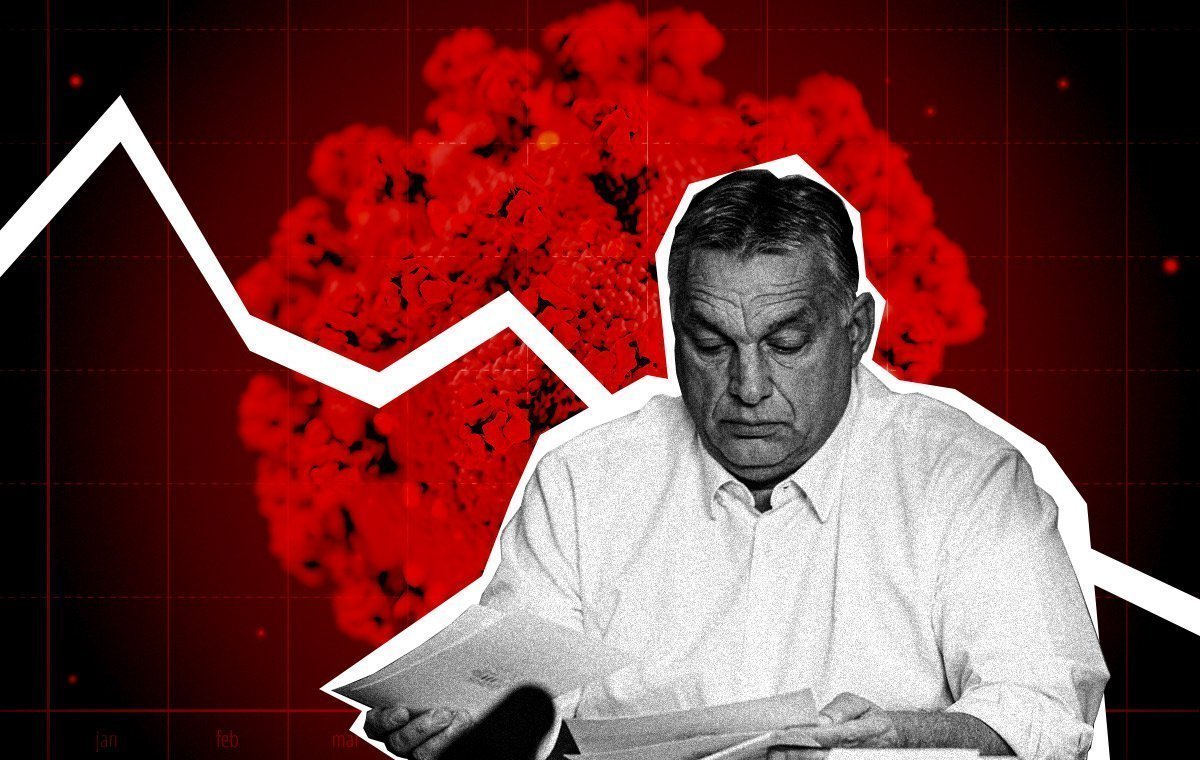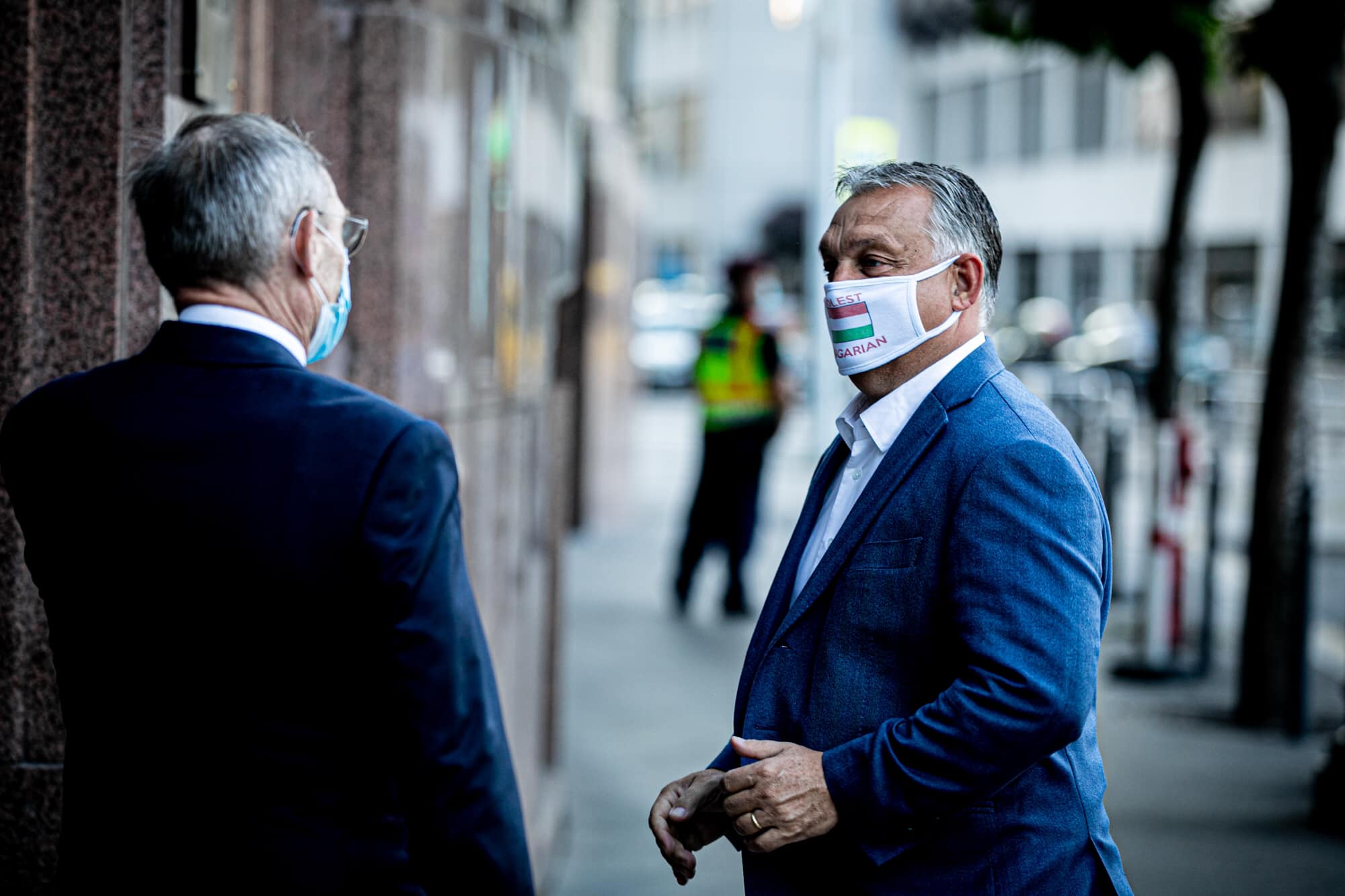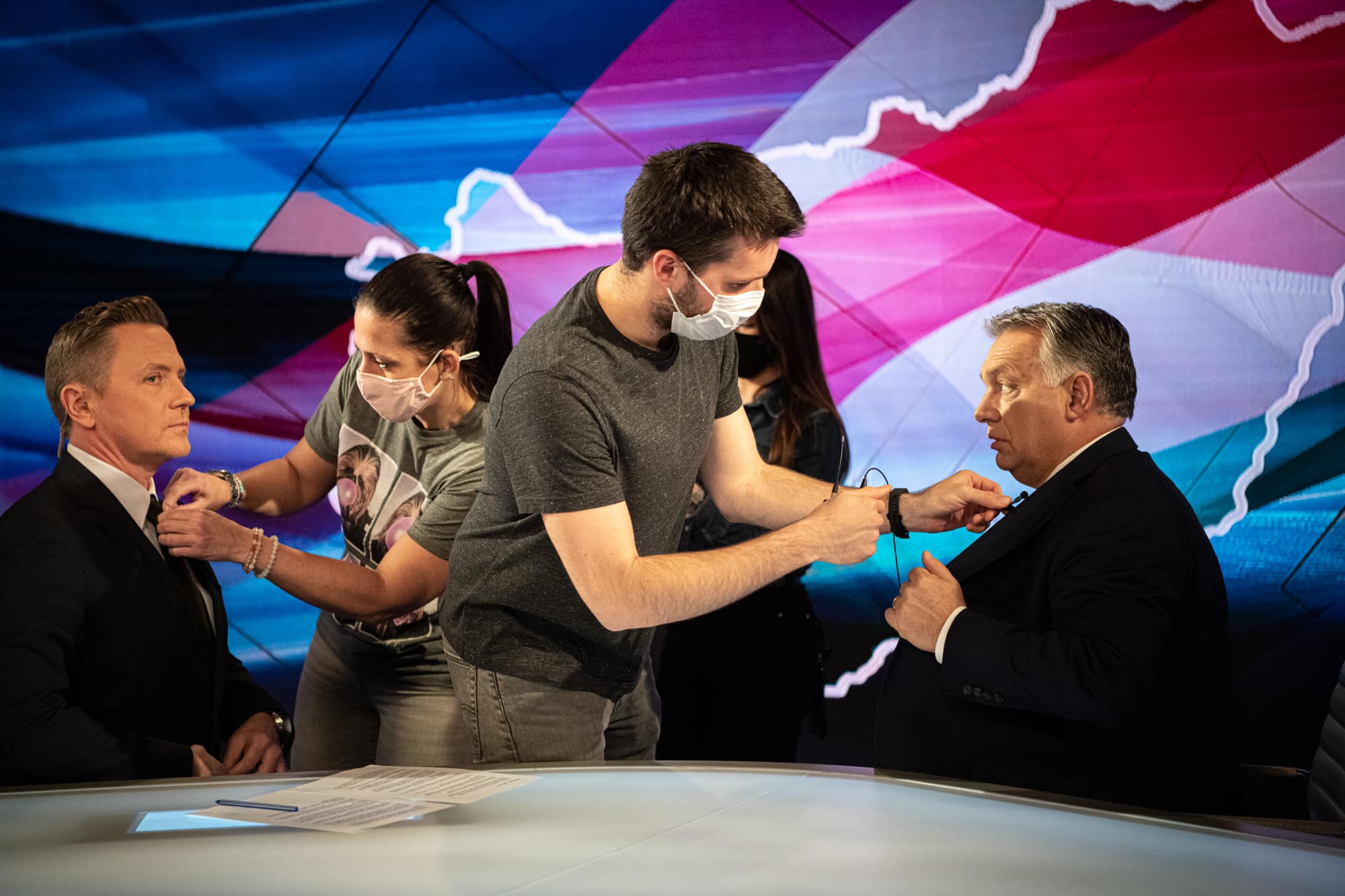Inside Viktor Orbán’s slow response to the second wave of COVID19

As the first wave of the COVID-19 pandemic eased at the end of last spring, politicians from the governing Fidesz party had also become more relaxed during the summer and even held a few parties. At one of these events in August with two senior government officials also present, the topic of the 2022 parliamentary elections came up. Unexpectedly, the officials became gloomy as politicians started discussing election prospects.
This surprised one of the participants, since public opinion polls showed good results for Fidesz. The governing party had emerged stronger from the first wave of the pandemic, and according to most polls it managed to stabilize or even increase its support.
The gloomy mood was caused by one unfavorable, but particularly important economic figure. The GDP for the second quarter of 2020, published in mid-August, turned out to be much worse than what the Hungarian government and Prime Minister Viktor Orbán had expected. The figure was especially shocking after Central Bank president György Matolcsy, a close ally of Orbán, had given much more optimistic forecasts about the economy’s performance.
While this was just one statistical data, it still shocked several governmental politicians. Since the second wave of the pandemic was just around the corner it was clear that economic difficulties would not disappear. Government officials were concerned that this can ultimately lead to a loss of support among voters.
Keeping the economy open despite the arrival of the new COVID-19 wave had therefore become the cornerstone of the government’s epidemiological strategy.
The government stuck to this principle until the time when months later Fidesz politicians in the countryside, where the pandemic hit particularly hard, began to express their discontent. In addition, by the beginning of November even internal polling numbers started to show that people were already more concerned about the illness than about losing their jobs. It was only then, when the death rate had sharply increased, that the government decided to change course and introduce new restrictions.
Nevertheless, economic aspects remained in the focus even after the introductions of the restrictions. The Prime Minister personally looked into which state-financed projects could boost the economy, while also taking into consideration political aspects, urging investments in districts that Fidesz could win in 2022.
Direkt36 has spoken with over a dozen of sources – government officials and opposition politicians with insights into the epidemiological response – to reveal how the decisions in fall 2020 were taken in the background.
In response to our questions, Fidesz’s parliamentary faction wrote to Direkt36 that epidemiological protection was not an issue of party politics and Fidesz MPs had faith in Hungarian epidemiological experts. They added that they were not concerned about economic difficulties and instead were working on the protection of Hungarian people and jobs. We also sent inquiries to the government and press chief of the Prime Minister, but have not received responses from them.
The Central Bank president might do magic
In previous years the government had been proud of the Hungarian GDP figures, which in 2019 was among the highest ones in the whole EU. Although the pandemic clearly pulled down Hungary’s economic performance similarly to other EU countries, the scale of this decrease was not immediately clear at the beginning of the summer.
Most economic forecasts predicted significant drops for the second quarter. For instance, finance minister Mihály Varga projected a 10-percent GDP decrease for the period. However, the Hungarian Central Bank, led by president György Matolcsy remained optimistic and he still predicted positive GDP numbers for 2020 and a 7-percent decrease for the second quarter of the year. Matolcsy believed that this would be a V-shaped impact, with a fast downfall followed by a speedy recovery.
His forecast was first met by skepticism not only in economic circles but also within the government, but later on Fidesz politicians started to believe his numbers. According to a source close to the government, Matolcsy’s reputation inside the governing party is of a “magician” who “says things that cannot rationally be proved but in the end they still work out.” Therefore, many secretly hoped that Matolcsy’s prediction might come true again.
With this in mind, the statistical data published on August 14 came as a shock. The setback for the second quarter was even bigger than forecasted by the finance ministry, reaching 13.6 percent. The Hungarian economy did not experience a fall like this even during the 2008-2009 world economic crisis. According to a source familiar with reactions inside the government, it was particularly concerning to the Prime Minister that the Hungarian figure was among the worst ones even in EU comparison.
The worse than expected economic performance had a sobering effect on the government. The most unsettling for them was that they believed that the GDP growth was in direct correlation with the voters’ perception of prosperity, meaning if people felt things were not moving forward, their standard of living was not increasing, they might turn away from Fidesz. This can pose a clear danger for the upcoming parliamentary elections in 2022.
The country must go on
Government officials did not voice their concerns openly, but in the following weeks, which also brought a visible increase in the number of infections, they made it clear that the economy was in their focus. “The previous shutdown of the Hungarian economy must be prevented (…) we are now living in the period of economic protection,“ foreign minister Péter Szijjártó said on September 2, 2020.
In his remarks at the time, Prime Minister Orbán listed the differences between the first and second wave strategies. He said that this time the government did not want measures that could paralyze the country and repeated that “the country must go on.” As the second wave in the fall first impacted mostly younger people who typically experienced milder symptoms, the Prime Minister stressed that what mattered now was the number of fatalities and not the number of infections.

Viktor Orbán wearing a mask, Photo: Facebook page of Orbán
The new protective measures included wearing of masks and Orbán, as well as Fidesz politicians, started to follow this personally. Fidesz politicians rarely wore masks in the parliament during the spring session but by September mask-wearing became mandatory. Even though this was generally accepted by Fidesz members, there were some signs of resentment. When a governing party politician showed up at a September meeting discussing prevention inside the parliament he was not wearing a mask. An opposition member recalled it caused some amusing moments while it took the politician five minutes to realize he should put his mask on.
Based on the Prime Minister’s instructions, the government did not introduce any additional serious measures in September except for border closures. Even though experts regularly advising the government, for instance Gergely Röst, a mathematician modeling the spread of the pandemic, and COVID-19 research group leader Ferenc Jakab publicly spoke about the dangerous speed of the spread of the virus since the end of August.
In addition, by the end of September contact tracing also fell apart, the goal of which was to identify all those who came in contact with infected persons. Contact tracing, along with the expansion of testing capacities, could have been an important way to keep the virus under control, but by that time the government had lost this option.
It was on one of these September days when a representative of an opposition-led municipality met with a government counterpart to discuss issues related to their work. The epidemiological situation also came up and the opposition politician inquired about potential upcoming restrictions. The government official said there would be none, because “the boss was pissed by the GDP data,” referring to PM Orbán. Regarding the concerns of experts, he said that “the epidemiologists were grumbling.”
In addition to these private comments, government politicians and public officials started to voice their disagreements with experts publicly. “The government wanted to maintain the impression that you will be cured, the health care system is working good, even though everyone involved knew this wasn’t true,” one infectologist said.
Many inside the government also thought that epidemiologists were simply narrow-minded and could not consider other than health aspects. Thus, according to a source close to the government, the approach of Fidesz politicians to science was increasingly based on “confidence and humorous reservations.”
Concerns inside countryside Fidesz
Even if infectologists and epidemiologists could not convince the government to consider restrictions, the government did listen to the opinions of its own rank-and-file politicians. By October the pandemic had hit the countryside, the political base of Fidesz, harder than the capital. This caused increasing alarm in the local party organizations.
Unusually, Fidesz MPs started to complain even to opposition politicians. A member of the opposition said that this was surprising, because normally Fidesz people had endless trust in Orbán and their approach had always been that “the boss knows” what he was doing. However, in private conversations they said that they “did not know if this would work.”
After a while complaints reached the right ears. According to a Fidesz mayor of a bigger city, the government started responding to concerns coming from the countryside. The responses typically said “no worries, we got this, there are proposals on the table.” The mayor added that the first reactions came around October 23, a national holiday, and intensified later.
By the end of October even internal polling numbers reflected the change in the public mood, and according to sources familiar with these polls health concerns became more important to citizens than economic aspects. The number of fatalities in international comparison also increased for this period, with the virus taking the lives of more than 2,000 people. This also questioned the government’s communication which had emphasized that the number of deceased, as opposed to the number of infections, reflected the success of protection.

PM Orbán announcing COVID-19 restrictions, Photo: Facebook page of Orbán
Finally, the government agreed to restrictions, which were then announced personally by Orbán. On November 3 he spoke about the introduction of an extraordinary legal order and three days later presented an alarming scenario in which the health care system would be overburdened by the number of infections within a few weeks. The following day he met again with epidemiological experts and on November 9 he announced restrictive measures such as a night curfew and the closure of high schools and universities that are still in force as of January.
The questions of restrictions had been on the government’s agenda since mid-October. Nevertheless, the implementation was not perfect, one sign of it being that the government decrees detailing the restrictions were published only a few hours before entering into force. “The situation in the spring was more unexpected, but the communication was better,” one Fidesz politician told Direkt36.
A few days following the announcement of restrictions, GDP data for the third quarter of 2020 were published in mid-November. These were better than those of the previous quarter but the new wave of infections and the newly introduced restrictions foreshadowed a difficult recovery.
The government has problems with its political strategy as well. As a source close to the government explained, this time there is no big theme that could become the center of its next election campaign like what they had in 2018 with a harsh anti-migration message. “There is not such topic now, instead there is uncertainty,” the source said.
In this situation the Prime Minister’s goal is to restore the economy as soon as possible and preserve jobs in order to secure its party’s election prospects. Boosting state investment projects will have a key role in this process.
According to a government official with knowledge about the details, Orbán considers the acceleration of state investments so important that he personally oversees their evaluation. In a November government meeting lasting late into the night Orbán and his ministers reviewed several thousand ongoing and planned state-financed projects, taking into consideration that churches, swimming pools, sports fields, schools, and other infrastructural projects should be finished as soon as possible in districts that Fidesz could win in 2022.
Szabolcs Panyi and Zsuzsanna Wirth contributed to this story.

